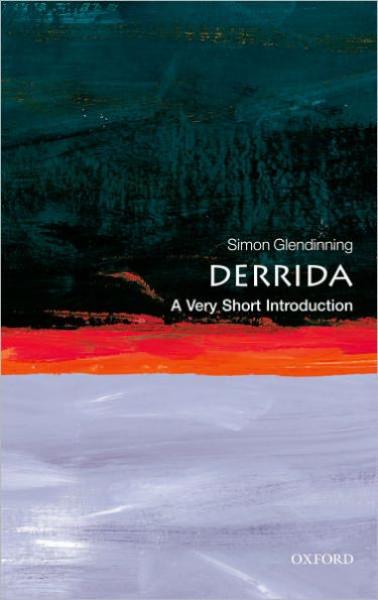Description
Jacques Derrida, the French philosopher, wrote such famed works as Writing and Difference, Speech and Phenomena, and On Grammatology, has made important contributions to both post-structuralism and post-modern philosophy, and indeed has challenged some of the unquestioned assumptions of our philosophical tradition. But he is most renowned--or condemned--for his critical technique known as deconstruction. In this Very Short Introduction, Simon Glendinning explores both the difficulty and significance of the work of Derrida. He argues that Derrida's challenging ideas make a significant contribution to, and providing a powerful reading of, our philosophical heritage. Defending Derrida against many of the attacks from the analytical philosophical community, he attempts to show why Derrida's work causes such extreme reactions. The author explains Derrida's distinctive mode of engagement with our philosophical tradition, and contends that this is not a merely negative thing. By exploring his most famous and influential texts, Glendinning shows how and why Derrida's work of deconstruction is inspired not by a critical frenzy, but by a loving respect for philosophy.
"Simon Glendinning explores both the difficulty and significance of the work of Derrida, arguing that his challenging ideas make a significant contribution to philosophy."--P. [2] of cover.
Connects the man's thinking to the concerns of the general reader...it's very short, and certainly worth reading. -- The Statesman
Glendinning's clarity and rigour, his commitment to careful reading, and his skilful mediation between Derrida's voluminous back-catalogue and the inexperienced reader will be sufficient to engage and stimulate new readers and new readings of Derrida's work.- Danielle Sands, Queen Mary, University of London; Philosophy in Review
"Simon Glendinning explores both the difficulty and significance of the work of Derrida, arguing that his challenging ideas make a significant contribution to philosophy."--P. [2] of cover.
Connects the man's thinking to the concerns of the general reader...it's very short, and certainly worth reading. -- The Statesman
Glendinning's clarity and rigour, his commitment to careful reading, and his skilful mediation between Derrida's voluminous back-catalogue and the inexperienced reader will be sufficient to engage and stimulate new readers and new readings of Derrida's work.- Danielle Sands, Queen Mary, University of London; Philosophy in Review
Last updated on
Product Details
- Oxford University Press, Brand
- Sep 2, 2011 Pub Date:
- 019280345X ISBN-10:
- 9780192803450 ISBN-13:
- 124 Pages
- 6.7 in * 4.2 in * 0.4 in Dimensions:
- 0 lb Weight:




